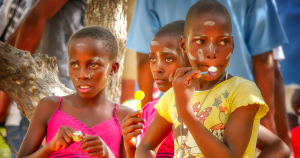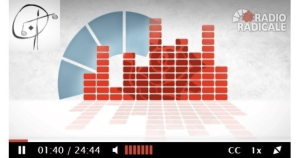Brussels-Rome, 10 January 2014
A few days ago, South Korea’s Defence Acquisition Program Administration (DAPA) denied two requests to export tear gas to Bahrain due to the “unstable politics in the country, people’s death due to tear gas and complaints from human rights groups”. The decision meets the call raised by the StopTheShipment campaign launched two months ago by the advocacy group “Bahrain Watch” and other international NGOs to prevent a shipment of large quantities of tear gas to Bahrain. The campaign initially targeted all of Bahrain’s tear gas suppliers, but focused on South Korea after DAPA confirmed in October that it was considering a request to export tear gas to Bahrain from an unnamed Korean company. The halted shipment was believed to contain in excess of 1.6 million tear gas canisters.
Statement by Alison Smith, Legal Counsel of No Peace Without Justice:
“No Peace Without Justice (NPWJ) and the Nonviolent Radical Party, Transnational and Transparty (NRPTT) welcome the decision of the South Korean authorities to suspend shipments of tear gas to Bahrain. This is a very clear message to the Bahraini authorities that ongoing repression of peaceful protests, including through inappropriate and indiscriminate use of such weapons, is not acceptable and will not be condoned.
“South Korea joins other countries, including the United States and United Kingdom, who have already stopped the export of chemical irritants to Bahrain on the grounds of political instability and human rights concerns. We call on other States whose governments have authorised the supply of similar toxic chemical agents to Bahrain to follow this example and stop sending these agents to repress the people of Bahrain. We also call on all States concerned to cease the transfer of any other forms of weaponry, munitions and related equipment that might be misused by Bahraini security forces against peaceful protesters.
“Since widespread popular protests and rallies demanding political reform started in Bahrain in early 2011, several people have died as a result of tear gas inhalation, while others have been killed by direct hits from canisters fired at close range into cars and homes. The United Nations Human Rights Council has raised serious concerns on this and there are well-documented reports of excessive and indiscriminate use of tear gas by Bahraini security forces against citizens and peaceful protesters, yet no police officer or other government official in Bahrain has been held accountable for these or any other alleged abuses.
“Despite the “smoke-screen” pledges made by Bahrain’s highest authorities’, human rights abuses faced by Bahrain’s political opposition and constituents continue unabated, greatly hampering the possibility of any meaningful change for the country’s political future, in both the short- and long-term. The only so-called “crime” by these opposition figures has been to speak out in favour of democratic reform and human rights.
“We urge the international community to take immediate and concrete steps to halt the deteriorating situation and to ensure Bahrain is accountable and abides by international human rights laws and norms. This includes first and foremost requiring that the Bahraini authorities respect and protect the fundamental rights of its citizens, release immediately and unconditionally all prisoners of conscience and establish credible accountability mechanisms to address past and continuing abuses.
“Justice and peace are integral to democracy. NPWJ and the NRPTT stand by the people of Bahrain to end the longstanding culture of impunity that remains intact in Bahrain and anchor their future on democracy, rule of law and respect of fundamental human rights.”
Read also:
- South Korea halts tear gas exports to Bahrain, Financial Times, 8 January 2014
- South Korea halts Bahrain tear gas exports, BBC News, 8 January 2014
For further information, contact Alison Smith on asmith@npwj.org or +32-2-548-3912 or Nicola Giovannini on ngiovannini@npwj.org or +32-2-548-3915. Check also the special section on NPWJ Bahrain Project




